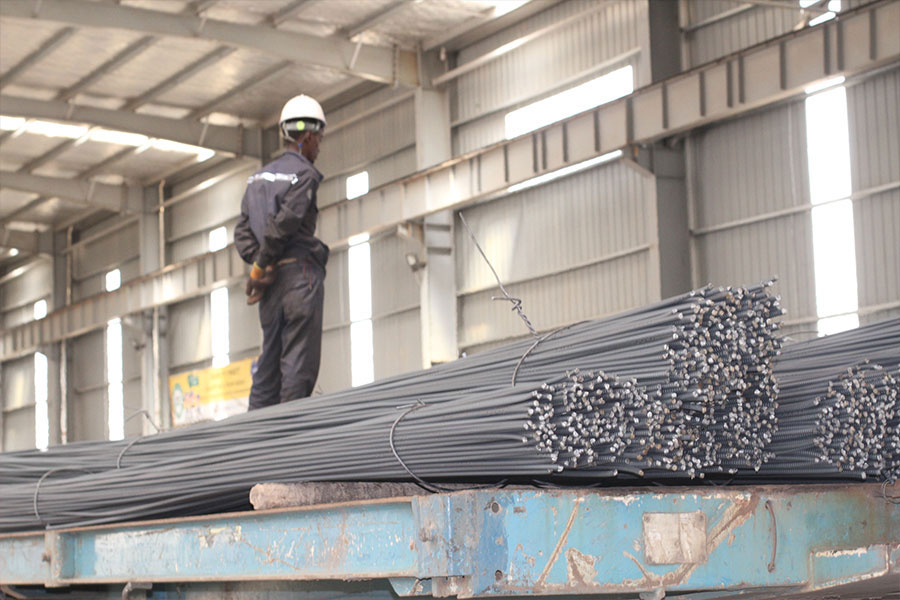
Apr 26 , 2019
By Eden Sahle
I was watching a football game last Saturday evening when a loud cry was heard in our neighbourhood. We went out of the house and found other neighbours that were as curious about the cry as we were. Together we went to investigate the source of the noise, which turned out to be coming from a house rented by non-nationals.
A woman kept screaming, “He is killing me!”
Intimidated by the unclear situation, most of us were on the phone trying to reach the police, while others heavily knocked on the gate of the three-storey house. Given that the tenants rarely ever interacted with members of the community, probably because they were non-nationals, meant that all types of speculations were flying around.
The gate was finally opened, and the woman that was screaming turned out to be a domestic helper. The tenants explained that they caught her red-handed stealing valuable and personal items, a claim we verified from the unharmed domestic worker. She screamed when her employers told her she was to leave the house in the morning after police were informed about the alleged theft incident. We returned to our respective homes leaving the matter to the police.
The relationship between domestic workers and employers is open to abuse, murder and theft. It is not uncommon to hear of children being sexually and physically abused by domestic helpers. Adults are not immune. Apart from probable theft, they constantly worry about providing excessive incentives to persuade caregivers to stay longer.
Abuse and crime are also perpetrated by employers. Domestic helpers can become victims of sexual, psychological and physical abuse from their employers who are convinced that they have the right to insult, intimidate and belittle such workers. This is especially the case in low-income households. Although domestic workers face higher exposure to sexual crimes, they do not file charges due to the social stigma, lack of awareness, isolation and the need to continue earning.
And there are brokers and employment agencies that worsen the situation, especially in trafficking young girls and women from rural areas, away from their family and education, with the promise of a better life.
Many domestic workers are also temporarily working locally while searching for a job in the Middle East. This may make the business of brokers lucrative, but employers face instability caused by high turnover of domestic workers. It is not unheard of for domestic workers to change places of work for a better payment, without notice, through the initiation of brokers who want to collect commissions from new employment.
The law does not facilitate a stable domestic labour environment for domestic workers. The labour law does not have a provision for domestic workers in its scope of application. Such glaring loopholes prevented employers from respecting workers’ rights and from holding domestic workers liable to contractual obligations.
What should not be overlooked is the large contribution of domestic workers in sustaining and supporting families and individuals, enabling them to enter the labour market. It is also an opportunity for employment.
Many nations, including several African countries, have adopted the International Labour Organization's (ILO) Convention for Domestic Workers. Ethiopia needs to make a paradigm shift by regulating and extending labour rights to domestic workers with the aim of rescuing it from continuous abuse.
The mistreatment coming from employers, and often reciprocated by domestic workers, persists in the absence of guidelines for the treatment and conditions of domestic workers in Ethiopia. It is a matter that will not address itself.
The country will do a great service to workers and employer’s personal, social and economic circumstances if it introduced a domestic worker’s regulations. Domestic workers have constitutional rights to claim equal protection under the law without discrimination.
PUBLISHED ON
Apr 26,2019 [ VOL
20 , NO
991]

Fortune News | Oct 21,2023

Radar | Jun 19,2021

Featured | Sep 23,2023

Life Matters | Jul 25,2020

Fortune News | Apr 27,2025

Fortune News | Feb 26,2022

Fortune News | Jan 21,2023


Radar | Dec 04,2022

Commentaries | Nov 05,2022

Photo Gallery | 171544 Views | May 06,2019

Photo Gallery | 161785 Views | Apr 26,2019

Photo Gallery | 151516 Views | Oct 06,2021

My Opinion | 136303 Views | Aug 14,2021





Dec 22 , 2024 . By TIZITA SHEWAFERAW
Charged with transforming colossal state-owned enterprises into modern and competitiv...

Aug 18 , 2024 . By AKSAH ITALO
Although predictable Yonas Zerihun's job in the ride-hailing service is not immune to...

Jul 28 , 2024 . By TIZITA SHEWAFERAW
Unhabitual, perhaps too many, Samuel Gebreyohannes, 38, used to occasionally enjoy a couple of beers at breakfast. However, he recently swit...

Jul 13 , 2024 . By AKSAH ITALO
Investors who rely on tractors, trucks, and field vehicles for commuting, transporting commodities, and f...

Oct 4 , 2025
Eyob Tekalegn (PhD) had been in the Governor's chair for only weeks when, on Septembe...

Sep 27 , 2025
Four years into an experiment with “shock therapy” in education, the national moo...

Sep 20 , 2025
Getachew Reda's return to the national stage was always going to stir attention. Once...

Sep 13 , 2025
At its launch in Nairobi two years ago, the Africa Climate Summit was billed as the f...

Oct 5 , 2025 . By NAHOM AYELE
In Meqelle, a name long associated with industrial grit and regional pride is undergo...

Oct 5 , 2025 . By BEZAWIT HULUAGER
The federal government is set to roll out a new "motor vehicle circulation tax" in th...

Oct 5 , 2025 . By NAHOM AYELE
The Bank of Abyssinia is wrestling with the loss of a prime plot of land once leased...

Oct 5 , 2025 . By BEZAWIT HULUAGER
The Customs Commission has introduced new tariffs on a wide range of imported goods i...